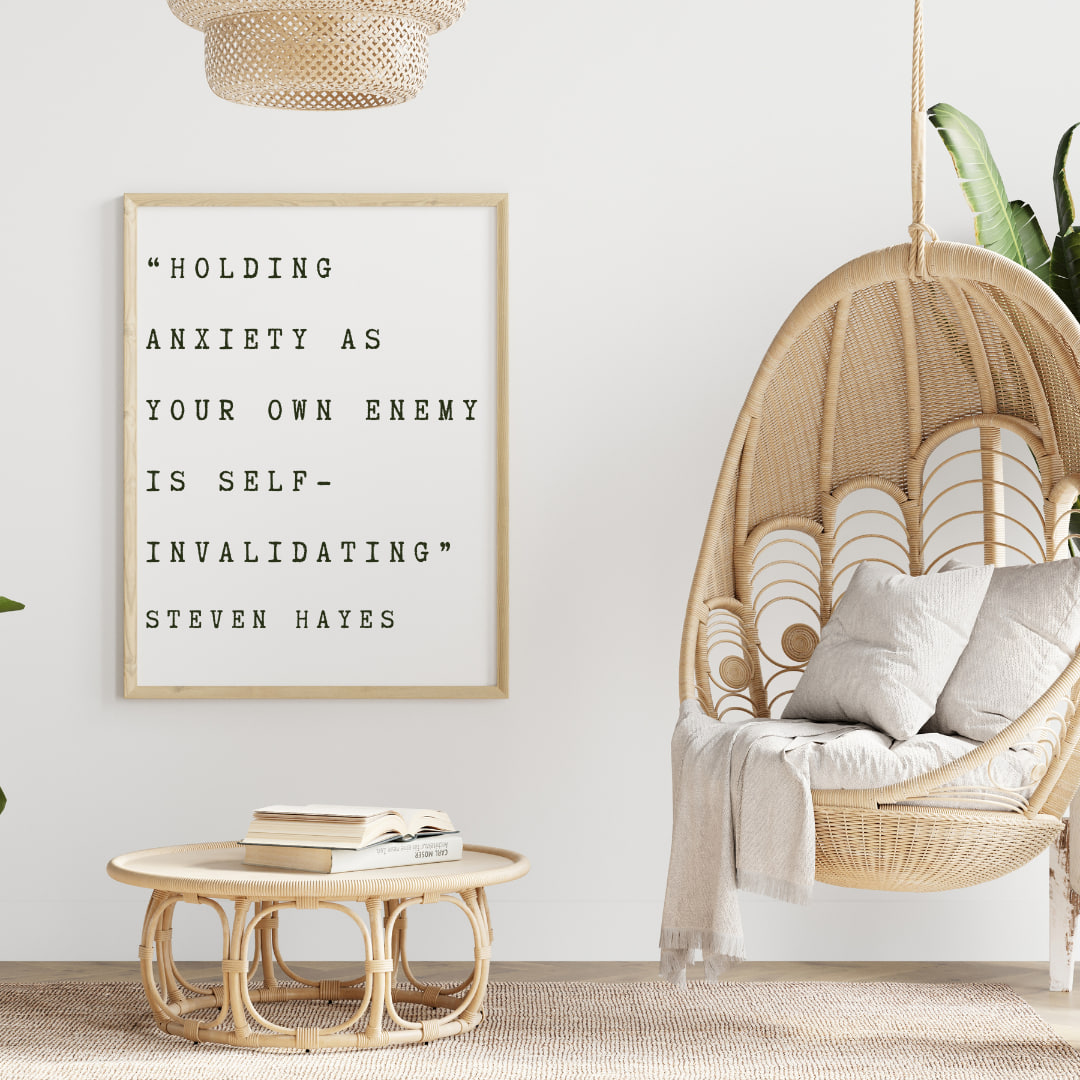Anxiety COUNSELLING

Our approach to Anxiety Treatment:
Evidence Baed Approach
Helping You Find Calm
Experience in Anxiety Treatment
A Holistic Approach
Developing Coping Strategies

DID YOU KNOW THATANXIETY DISORDERS are one of the most treatable mental health problems? Therapy, medications, or a combination of both can be highly effective in the treatment of anxiety disorders.
What is Anxiety

Signs of Anxiety?
Excessive Worry
Physical Symptoms:
Restlessness or Irritability
Difficulty Concentrating:
Sleep Disturbances:
Muscle Tension:
Avoidance Behaviors:
Panic Attacks:
Social Anxiety:
“You can’t stop the waves, but you can learn to surf.”
THE STEPS INVOLVED IN YOUR THERAPY PROCESS
- Schedule a complimentary consultation.
- Book your first session to kickstart your therapy process if we resonate with you.
- Keep in mind that therapy isn’t a quick fix; consistency is vital for positive outcomes.
- Reflect on sessions and apply insights for maximum therapeutic benefits.
- Communicate what works and what doesn’t; therapy is a collaborative process.
Different types of DEPRESSION
Social Anxiety
People with social anxiety tend to feel anxious and uncomfortable in social situations. They tend to avoid social situations due to the fear of experiencing anxiety symptoms such as sweating, shortness of breath, or dizziness. The avoidance usually creates a vicious cycle which leads to more social anxiety over time. Therapy for social anxiety helps clients develop tools to regulate their anxiety symptoms and also understand what beliefs and life experiences might be underlying their social anxiety.
Panic Disorder
Individuals with panic disorder experience episodes of intense anxiety and dread called panic attacks. Panic attacks are usually very intense and include physical sensations such as chest pain, heart palpitation, sweating, shortness of breath, and dizziness. People experiencing panic attacks sometimes feel “out of body” and disconnected and worry that they will die. Sometimes the anxiety symptoms are so scary that a client ends up in a hospital`s emergency room.
Anxiety counselling helps clients to learn how to cope with panic attacks when they arise. More importantly, anxiety therapy helps clients process what underlies their panic attacks so that their nervous system becomes more regulated in the long run and does not go into panic as often.
Generalized Anxiety Disorder (GAD)
People with generalized anxiety disorder feel a general sense of anxiety, restlessness and being on edge on a regular basis. They have common anxiety symptoms such as abdominal discomfort, digestive issues, shortness of breath, heart palpitations, irritability, difficulty concentrating and sleep issues. Individuals with generalized anxiety disorder often think of the worst-case scenarios, overprepare for an upcoming situation and avoid any situation that involves uncertainty.
An anxiety therapist will help a client with GAD to develop coping skills as well as understand the root of the heightened arousal of their nervous system. Clients with severe generalized anxiety disorder might benefit from combining therapy with an anxiety medication.
Post-traumatic Stress Disorder (PTSD)
Post-Trauamatic Stress Disorder (PTSD) is anxiety disorder that happens when a person has witnessed or experienced a life-threatening and terrifying event which was inescapable. People with PTSD have common anxiety symptoms along with flashbacks (reliving the traumatic moment), intrusive thoughts/memories about the traumatic event and avoidance of potential triggers. Trauma for PTSD includes helping the client to heal the emotional, physical and cognitive footprints of the trauma by processing the traumatic event in the safety of therapy sessions.
Obsessive Compulsive Disorder (OCD)
Phobia
Phobia is an anxiety disorder which involves an intense, excessive, persistent and unrealistic fear of an object, animal, situation or activity. People with phobia experience intense anxiety when faced with their feared object and will go to extreme lengths to avoid the object of their phobia, which increases their symptoms of phobia. One of the most effective therapy approaches to treating phobias is “desensitization “therapy in which clients are gradually exposed to their object of phobia over time to reduce anxiety.
FAQ
Are anxiety disorders treatable?
Yes. Anxiety disorders are, in fact, highly treatable with the right support. Most patients see improvements in their anxiety symptoms and lead normal lives when they receive the proper support. This includes receiving anxiety treatment through psychotherapy, lifestyle changes or medications. The combination of all of these supports is usually most helpful.
What are some common anxiety therapies?
There are different evidence-based approaches to treating anxiety, such as cognitive behavioural therapy, mindfulness-based therapy, IFS therapy and AEDP. My training in all of these approaches allows me to choose what works best for your anxiety symptoms.
Can therapy alone help me to treat my anxiety?
Research has shown that therapy can be very effective in reducing the symptoms of anxiety. It is important to remember that changes with therapy happen gradually and there is no fast cure. It is also important to remember that anxiety therapy is most effective when combined with healthy lifestyle changes.
How common are anxiety disorders?
Anxiety disorders are the most common types of mental disorders. If you are experiencing anxiety , you are not alone.
What happens if I don’t get anxiety treatment?
Untreated anxiety often gets worse over time as our nervous system becomes chronically dysregulated. Untreated anxiety can also lead to depression.
What is the main cause of my anxiety?
There is often not a single factor that causes anxiety. Anxiety disorders usually arise through a combination of current and past life events , childhood traumas, temperament , genetics and medical conditions.

About Roya Counselling
At Roya Counselling, we are committed to providing professional, ethical, and evidence-based counselling services that prioritize your well-being. We understand that seeking therapy can be a difficult and brave decision, and we honor the trust you place in us. We have personally experienced the transformative power of therapy, and we will never take your desire for healing lightly.
More
We feel very privileged to hear about our clients’ hopes, goals and pains and witness them slowly recovering their peace, happiness and livelihood.
